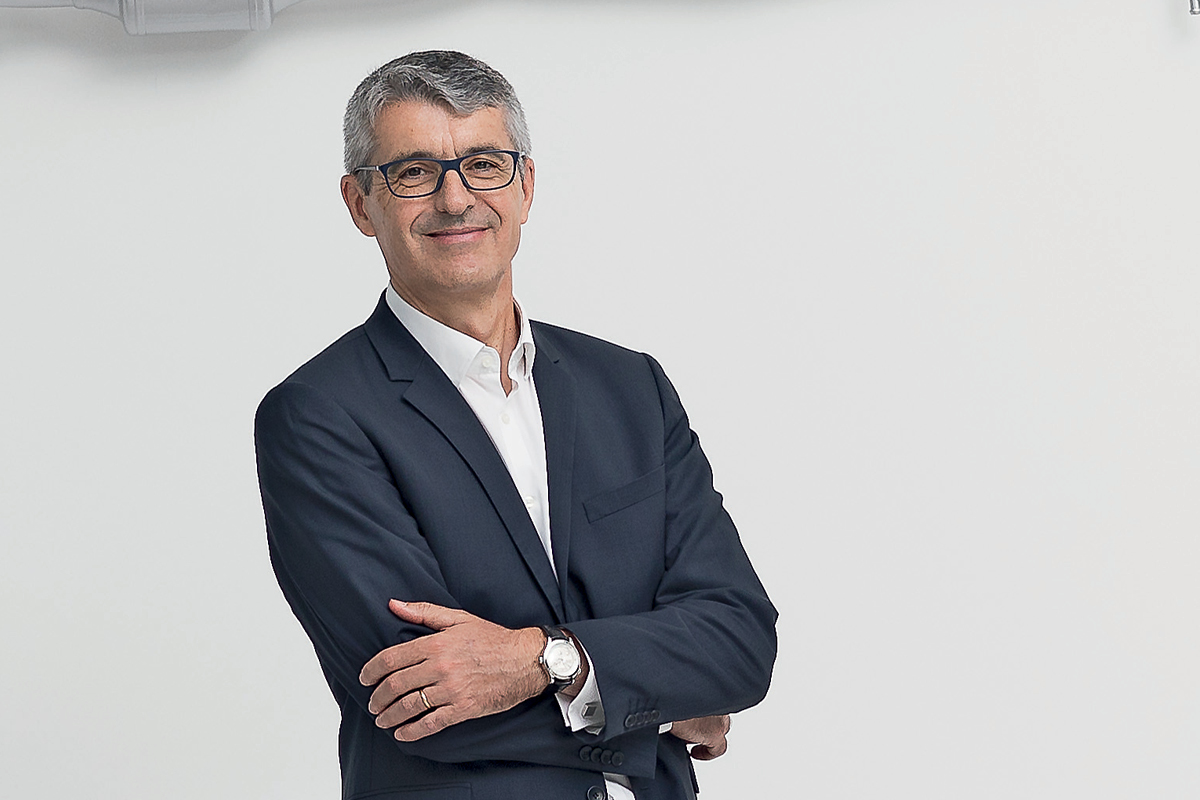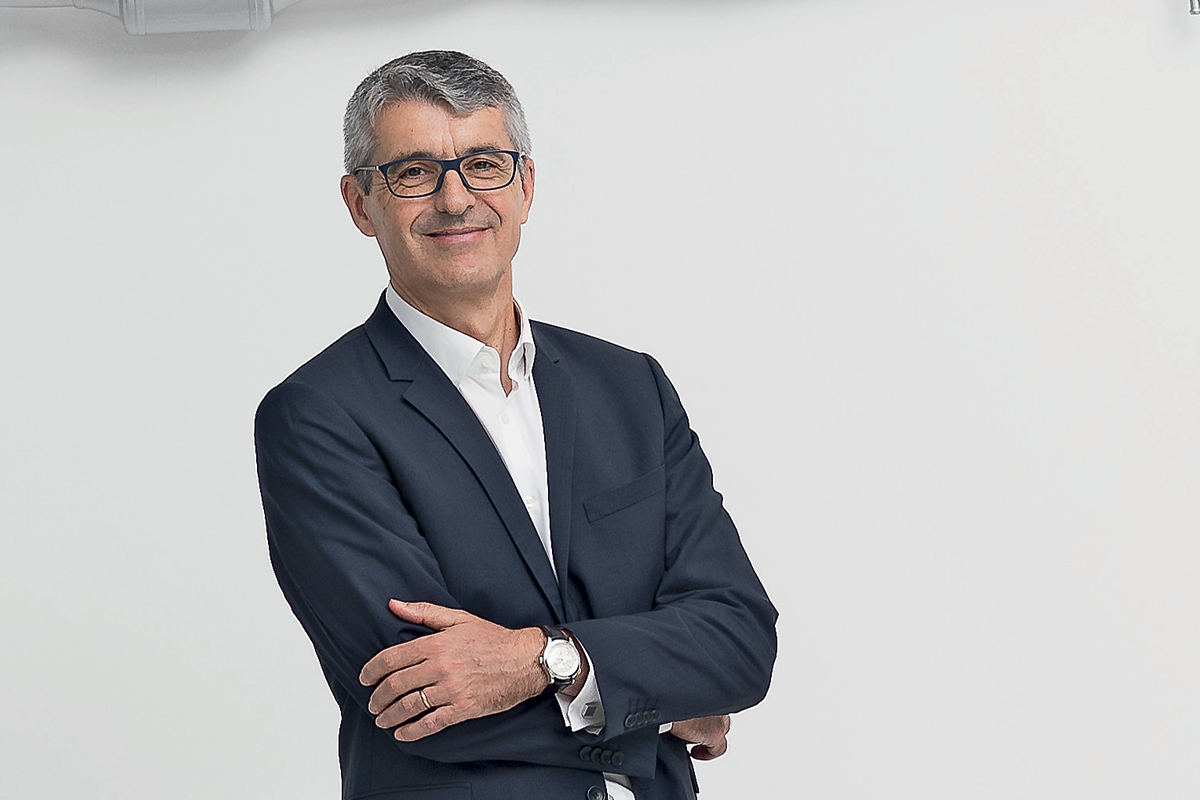François Tardif is an engineer who believes in the positive impact of technology on society. Asked to consider a figure whose achievements have been particularly inspiring to him, François landed upon Marie Curie who, “through her science, had a tremendous impact on her society, and on all of our lives”. Serving as the Executive Vice President for the Chinese arm of the automotive parts manufacturer Faurecia, he is acutely aware that “technology can have a significant impact on people’s lives”, and notes that the company is moving in a direction that will enable it to create a new kind of mobility for individuals. “This will be a total game changer, life-changing for billions of people on earth.”
Marie Curie, of course, also came up with a new kind of mobility, one that changed the lives of thousands of soldiers on the battlefronts of World War I. With her work at the Radium Institute put on hold by the outbreak of hostilities, Curie travelled to Paris in September 1914, where she set to work convincing the French government, assorted manufacturers and affluent individuals to give her the resources to enable her to build 20 ‘petite Curies’ – small ambulance-like mobile radiology trucks equipped to treat soldiers on location – resulting in innumerable lives saved.

While the global automotive industry in the 21st century is worlds apart from the war-ravaged Europe of the 1900s, the key to certain kinds of success in both is a harnessing of the potential afforded by mobility. This is reflected in a new motto Faurecia launched in 2017: ‘Inspiring mobility’.
“Faurecia is transforming from a traditional automotive equipment company into one dealing with the mobility of people, creating new solutions to improve this,” François explains. Founded in 1997, the Faurecia Group incorporates divisions specialising in seating, interiors and clean mobility (relating to emissions control and vehicle electrification) and, with a presence in 35 countries, it’s a truly global company.
François has spent his entire career – a period of more than 30 years – in the automotive sector. While different eras have been marked by the acquisition of different skills, one common thread has been woven through his experience: “I have always been in contact with China.” This should come as no surprise given that, as François notes, “China has historically been an important part of the auto industry.” Taking his first trip to the country in 1994, he moved there permanently in 2017, taking on the role of Executive Vice President in charge of Faurecia China in January 2018.
“The business in China is an integral part of our strategy,” François says, “and is considered of vital importance to the development of the Group, due to its market size and the opportunities for growth that it offers.” The company is currently transforming in line with ‘mega-trends’ emerging in the auto industry, including the evolution towards connected, autonomous, ride-sharing and electric vehicles.
“It’s exciting to be in the automotive industry these days, because we are seeing so many changes,” he says. In line with these trends, the company acquired Jiangxi Coagent Electronics Co, a Chinese company specialising in in-vehicle infotainment (IVI),
in November 2017.
“IVI is extremely important as part of the evolution of cabins, or what we call the ‘Cockpit of the Future’,” François explains. More recently, the Group announced a project to acquire Clarion from Hitachi Automotive System, which significantly reinforces Faurecia’s offer for cockpit systems integration.

The design of the Cockpit of the Future is currently one of Faurecia’s main areas of interest. When cars have become autonomous, he asks, “What is it that we will want to do? How will we design the interior of a car in such a context?” The solution is to provide personalised experiences to passengers, incorporating connected and predictive seats, morphing instrument panels that respond to shifts between driving and autonomous modes, and an immersive sound experience resting on an audio system that features individual sound bubbles.
Faurecia’s work on the Cockpit of the Future is being carried out in conjunction with FAW Group, in Changchun, and François places a high value on collaborative relationships like this. The company has entered into joint ventures with Dongfeng Motor Corporation, Chang’an Automobile, BYD and Wuling Industries, and this cooperation with Chinese original equipment manufacturers has been a main area of focus for the group over the past three years, part of building “a complete ecosystem here in China geared towards these new vehicles”.
Considering the way the company shapes its supplier relationships, François acknowledges, “Faurecia is a multinational company, so we cannot just operate as a single local entity. We have to deal with the reality of having both global and local suppliers, and need to manage our global supply chain accordingly.” Faurecia gives its local suppliers the chance to access the benefits arising from being part of the company’s global supply chain.
“The spirit we encourage here is one that sees a relationship of partners, rather than a traditional customer–supplier relationship.” In these relationships, François explains, “we are looking for competitiveness and quality, obviously, but innovation is also fundamental. The capacity of our suppliers in the local market in China to bring innovative ideas to us with the appropriate speed is extremely important.”
While the company is restructuring to take advantage of new technologies, there is a concerted effort being made among upper management to align the vision of employees with that of the company. This project started almost five years ago, in March 2014, when the ‘Being Faurecia’ initiative was born. “The initiative intends to evolve the company’s culture,” François tells The CEO Magazine. “Our idea was to develop more of an understanding of value creation, behind which is not only entrepreneurship and autonomy or empowerment of our employees, but also innovation.”
Innovation is never far from François’ mind, and he turns to a philosopher to explain his approach to encouraging it. “Seneca said, ‘It’s not because things are difficult that we do not dare; it is because we do not dare that things are difficult’. This matches my current thinking. I want people to be ambitious, to be daring, and not be overly concerned or analytical regarding what we are confronted with. If we are too analytical in response to what we are confronted with, nothing will happen.”

When talk turns to leadership, François reveals that his strategy is underpinned by three crucial elements, or complementary pillars: vision, empowerment and teamwork. “Leadership cannot be limited to a vision,” he says. “The key for people is empowerment in the realisation of the vision, and the sum of employees is twice as strong when they work as a team than as a group of individuals.”
François evidently enjoys what he does, and loves where he gets to do it. “In China, the speed you can experience in business is also seen in daily life. China is a diversified country, with very open people; above all, what I truly value here is the curiosity people have regarding new technologies.
“Going back to business, this presents a perfect opportunity to a company like Faurecia.”



